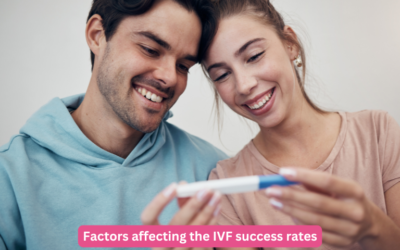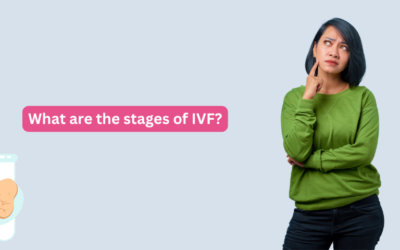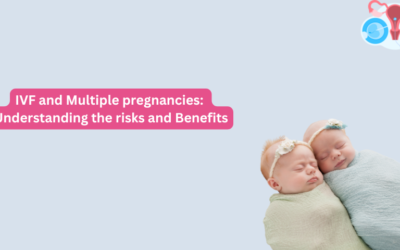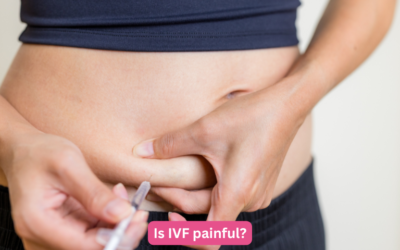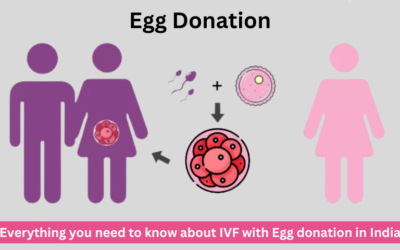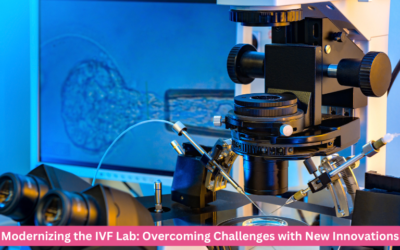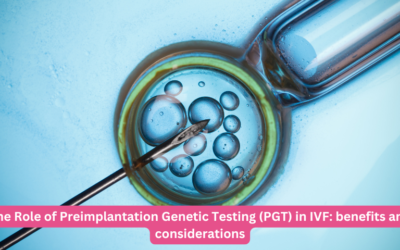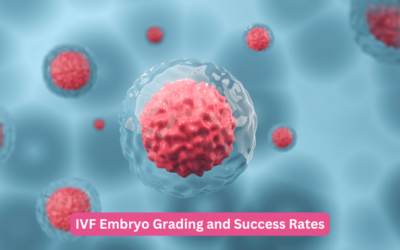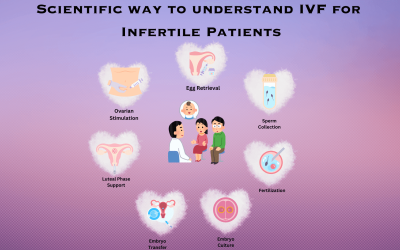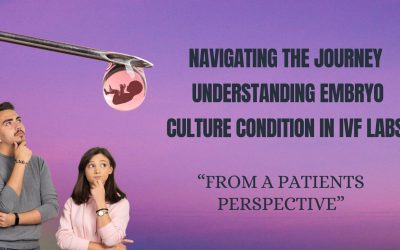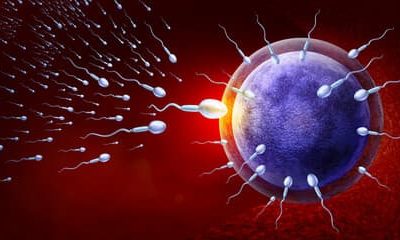Navigating the path to parenthood can be both exciting and daunting, especially when facing fertility challenges. For many individuals and couples, choosing between Intrauterine Insemination (IUI) and In Vitro Fertilization (IVF) is a critical decision. Each treatment has its unique approach, benefits, and suitability depending on various factors. At Shukan Hospital and IVF Centre Highlight this, we are dedicated to helping you understand these options so you can make the best decision for your situation. In this blog, we’ll explore the differences between IVF and IUI, helping you determine which fertility treatment might be right for you.
Understanding IUI: A simpler approach to fertility
What is IUI?
Intrauterine Insemination (IUI) is a fertility treatment designed to increase the number of sperm reaching the fallopian tubes, thereby improving the chances of fertilization. The procedure involves placing sperm directly into the uterus during ovulation, bypassing potential barriers like cervical mucus.
How does IUI work?
- Ovarian stimulation: In many cases, IUI is combined with medication to stimulate the ovaries to produce multiple eggs. This increases the chances of successful fertilization.
- Sperm preparation: Sperm is collected from a partner or a donor and then processed in a lab to concentrate the healthiest sperm.
- Insemination: Using a thin catheter, the prepared sperm is injected directly into the uterus.
Ideal candidates for IUI
- Unexplained infertility: Couples with no identifiable cause of infertility may benefit from IUI.
- Mild male factor infertility: If sperm count or motility is slightly below normal, IUI can improve chances of pregnancy.
- Cervical issues: Women with cervical mucus problems that hinder sperm passage might find IUI helpful.
- Husband zero sperm count : IUI with donor sperm provides options for those using sperm from a donor.
Success rates and considerations
- Success rates: IUI has a lower success rate compared to IVF, but it can still be effective, especially when combined with ovulation-stimulating medications. Success rates vary based on age and underlying fertility issues.
- Cost: Generally less expensive than IVF, making it a more accessible initial treatment option.
- Invasiveness: Less invasive and physically demanding compared to IVF.
Exploring IVF: A comprehensive approach to fertility
What is IVF?
In Vitro Fertilization (IVF) is a more advanced fertility treatment where eggs and sperm are combined outside the body to create embryos. These embryos are then transferred into the uterus, bypassing many potential barriers to conception.
How does IVF work?
- Ovarian stimulation: Hormonal medications are used to stimulate the ovaries to produce multiple eggs.
- Egg retrieval: Mature eggs are retrieved from the ovaries using a minor surgical procedure.
- Fertilization: Eggs are combined with sperm in a laboratory setting. This can be done via traditional insemination or Intracytoplasmic Sperm Injection (ICSI), where a single sperm is injected into an egg.
- Embryo culture: The fertilized eggs develop into embryos in the lab.
- Embryo transfer: One or more embryos are selected and transferred into the uterus.
Ideal candidates for IVF
- Blocked fallopian tubes: Women with blocked or damaged fallopian tubes may benefit from IVF as it bypasses the need for tubal passage.
- Severe male factor infertility: IVF, particularly with ICSI, can address severe issues with sperm count or motility.
- Advanced maternal age: IVF is often recommended for older women where egg quality may be a concern.
- Repeated IUI failures: If previous IUI cycles have not resulted in pregnancy, IVF may be the next step.
Success rates and considerations
- Success rates: IVF generally has higher success rates per cycle compared to IUI, particularly for younger women. Success rates can vary based on age, egg quality, and other factors.
- Cost: IVF is more costly due to its complexity and the need for multiple stages of treatment. However, it often provides a higher chance of conception, particularly in complex cases.
- Invasiveness: IVF involves more procedures and a greater physical and emotional commitment compared to IUI.
Comparing IVF and IUI: Key differences
Effectiveness
- IVF: Higher success rates, particularly for more complex fertility issues or when other treatments have failed.
- IUI: Effective for less severe infertility issues and can be a good first-line treatment before moving to more advanced options.
Procedure complexity
- IVF: More complex with multiple stages and a higher level of medical intervention.
- IUI: Simpler, involving fewer steps and less invasive procedures.
Cost & Accessibility
- IVF: Higher cost and often requires multiple cycles for a higher success rate.
- IUI: More affordable and accessible, making it a practical option for many couples.
Making the right choice: Factors to consider
Age and health
- Age: Women under 35 generally have better success rates with both IUI and IVF. For women over 35, IVF may offer higher success rates.
- Health conditions: Conditions such as endometriosis, PCOS, or male infertility issues can influence the choice between IUI and IVF.
Previous treatments
- Past experiences: If IUI has been unsuccessful after several attempts, IVF might be considered to increase the chances of conception.
Emotional and financial considerations
- Emotional impact: IVF can be more emotionally taxing due to its complexity and time commitment.
- Financial factors: Consider your budget and insurance coverage, as IVF is typically more expensive than IUI.
Conclusion
Choosing between IVF and IUI depends on a range of factors including the cause of infertility, age, health conditions, and financial considerations. At Shukan Hospital and IVF Centre, we are committed to providing personalized care and helping you make the best decision for your fertility journey.
If you’re exploring fertility treatments, our team of experts is here to guide you through your options and support you in creating a tailored treatment plan. Contact us today to schedule a consultation and take the next step towards achieving your dream of parenthood.
Author bio
Dr Prakash Patel
He is a highly respected Infertility and IVF Specialist with an extensive medical career spanning over two decades. As the Director of Shukan Hospital & IVF Centre, he has dedicated his life to helping couples achieve their dreams of parenthood. He is renowned for his expertise in advanced laparoscopic surgeries and has successfully managed numerous complex cases involving recurrent miscarriages and recurrent IVF failures. His proficiency in high-risk pregnancy management and advanced IVF treatments makes him a trusted name in the field of reproductive medicine.
His approach to patient care is deeply compassionate, combining his vast clinical knowledge with a commitment to personalized treatment. He holds prestigious certifications from leading medical institutions in France and Croatia, reflecting his dedication to staying at the forefront of medical advancements. With memberships in notable organizations like FOGSI and ISAR, He is recognized both nationally and internationally for his contributions to gynecology and reproductive health.
Under his leadership, Shukan Hospital & IVF Centre has become one of the premier fertility centers in Gujarat, known for its state-of-the-art facilities and patient-centered care. His outstanding work has earned him several accolades, including the My FM Achiever Award, further cementing his reputation as a leading specialist in his field.
FAqs
How long does each treatment take from start to finish?
- IUI: The IUI process typically involves a single cycle of stimulation and insemination, which can take a few weeks.
- IVF: IVF involves several stages including ovarian stimulation, egg retrieval, fertilization, embryo culture, and transfer. The entire process can span several weeks to a few months, depending on individual circumstances and protocol.
What are the potential side effects of IUI and IVF?
- IUI: Side effects are generally mild but can include cramping, spotting, or a mild reaction to ovulation-stimulating medications.
- IVF: Side effects may be more pronounced and can include ovarian hyperstimulation syndrome (OHSS), discomfort from egg retrieval, and mood swings due to hormonal medications.
Can lifestyle factors impact the success rates of IUI or IVF?
IUI and IVF: Yes, factors such as diet, exercise, smoking, and alcohol consumption can affect the success rates of both treatments. Patients are often advised to make lifestyle adjustments to improve their chances of conception.
What role does male fertility play in the success of IUI and IVF?
- IUI: Male fertility issues can affect IUI success rates, but IUI can still be effective with mild sperm abnormalities.
- IVF: IVF, especially with ICSI, is designed to address severe male fertility issues, such as low sperm count or poor motility.
Are there any specific preparations needed before starting IVF or IUI?
- IUI: Preparation may involve tracking ovulation and undergoing pre-treatment tests to ensure suitability.
- IVF: Preparation often includes a thorough medical evaluation, lifestyle changes, and sometimes pre-treatment medications to optimize the ovarian response.
What are the chances of multiple births with IUI and IVF?
- IUI: The risk of multiples can be higher if ovarian stimulation is used, though it is generally lower compared to IVF.
- IVF: There is a higher chance of multiples, especially if multiple embryos are transferred, though single embryo transfer options are available to reduce this risk.
How do success rates compare for IUI and IVF in cases of unexplained infertility?
- IUI: Success rates can vary widely and are generally lower for unexplained infertility.
- IVF: IVF tends to offer higher success rates for unexplained infertility due to its ability to directly address and overcome various underlying factors.
Blogs related to Advance IVF Treatments
Essential IVF tests: What you need to know before starting treatment?
In-vitro fertilization (IVF) offers hope to many couples and individuals dreaming of parenthood. However, starting IVF requires a series of...
Factors affecting the IVF success rates
In vitro fertilization (IVF) has brought hope to millions of couples struggling with infertility. However, understanding the factors that influence...
What is the right age for an IVF procedure?
Navigating the journey to parenthood can be a complex and emotional experience, especially when considering assisted reproductive...
What are the stages of IVF? A step-by-step guide by Shukan Hospital & IVF Centre
In-vitro fertilization (IVF) has opened new pathways to parenthood for those facing fertility challenges. Whether you’re considering IVF or are in...
IVF and Multiple pregnancies: Understanding the risks and Benefits
In vitro fertilization (IVF) has brought hope to countless couples seeking to build families. However, one of the more complex aspects of IVF is the...
Is IVF Painful?
For many couples struggling with infertility, in vitro fertilization (IVF) represents hope. However, one common question patients often ask is, "Is...
Everything you need to know about IVF with Egg donation in India
Becoming a parent is a cherished dream, but for some, it can involve overcoming fertility challenges. IVF with egg donation is a specialized...
What is the difference between IVF & Test tube baby?
In the world of fertility treatments, you often hear terms like "IVF" and "test tube baby" used interchangeably. This can create confusion for...
IVF after miscarriage: What you need to know
Experiencing a miscarriage can be a profoundly emotional and challenging time. For many, the journey toward parenthood does not end with a...
The Climate Connection: Weather’s Impact on IVF Success Rates
In vitro fertilization (IVF) is a highly controlled medical process, but can external factors like weather influence its success? This blog explores...
The Human Touch: Emotional and Ethical Considerations in IVF
In vitro fertilization (IVF) is more than a complex medical procedure; it represents a profound journey of hope, emotions, and critical ethical...
Modernizing the IVF Lab: Overcoming Challenges with New Innovations
In vitro fertilization (IVF) has transformed reproductive medicine, offering hope to individuals and couples facing infertility. At the core of this...
The role of Preimplantation Genetic Testing (PGT) in IVF: benefits & considerations
At Shukan Hospital & IVF Centre, we are at the forefront of advanced fertility treatments, striving to provide our patients with the best...
5 Best IVF hospitals in Ahmedabad
Choosing the right IVF hospital is a crucial step in the journey towards parenthood, especially in a city as vibrant as Ahmedabad. With advancements...
Key Questions Every Pregnant Woman Needs to Ask Their Gynecologist
Pregnancy is an exciting journey filled with anticipation, but it can also be a time of uncertainty and questions. It's essential to have open and...
IVF Embryo Grading and Success Rates
IVF (In Vitro Fertilization) has become a beacon of hope for many couples struggling with infertility. One of the critical steps in the IVF process...
Fertility Treatments for Women with Low AMH and Regular Periods
Understanding Low AMH Anti-Müllerian Hormone (AMH) is produced by the small follicles in a woman's ovaries and serves as a marker of ovarian...
The Role of Genetics in Female Infertility
Infertility is a complex and often emotionally challenging issue that affects millions of women worldwide. Understanding the underlying causes is...
How to Prepare for Fertility Treatments: A Comprehensive Guide
Embarking on the journey of fertility treatments is a significant step towards achieving your dream of parenthood. Proper preparation can greatly...
Comprehensive Care Post IVF Transfer
The journey through In Vitro Fertilization (IVF) is both challenging and rewarding. After the embryo transfer, a critical phase begins that requires...
Scientific way to understand IVF for Infertile Patients
Introduction:Infertility can be a challenging and emotional journey for individuals and couples dreaming of starting a family. In recent years,...
Unlocking the Secrets: Epigenetics at the Core of Embryonic Development
Embarking on the extraordinary journey of embryonic development, Shukan Hospital and IVF Center stand as pillars of expertise, guiding aspiring...
Why Blastocyst Transfer for Healthy Pregnancy
Introduction:Blastocyst embryo transfer is a technique used in assisted reproductive technologies (ART), The method of transferring embryos during...
NAVIGATING THE JOURNEY ,UNDERSTANDING EMBRYO CULTURE CONDITION IN IVF LABS FROM A PATIENTS PERSPECTIVE.
Introduction:The IVF lab plays a central and pivotal role in the development of embryos during the in vitro fertilization (IVF) process. Embryo...
Demystifying Common Infertility Myths: Separating Fact from Fiction
Infertility is a condition that affects many couples who are trying to conceive a child. It is defined as the inability to get pregnant after one...
Struggling with poor ovarian reserve! Know All about it and it’s treatment!
Ovarian reserve (POR) is a condition in which the number of eggs in a woman's ovaries is less than would be expected for her age. As it can affect...
Myths and Facts About IVF
While in-vitro fertilization (IVF) is becoming increasingly popular as an effective infertility treatment, there are still some myths associated...
The Importance of Mental and Emotional Health During the Fertility Journey
During fertility treatments, the body goes through a lot, which can also impact the mind. When individuals choose to undergo in vitro fertilization...
Why India is the Best option for IVF treatment?
In vitro fertilization (IVF) treatments are popular in India due to their lower costs and high success rates. Further, India is home to some of the...
Why are my Fertility Treatments ending up in failed cycles?
Fertility treatments that are not successful can take a toll on the couple, both emotionally and financially. However, the one benefit is that...
Why IVF fails. ?
According to the latest statistics from the Society for Assisted Reproductive Technologies (www.sart.org) in the year 2011, there were a total of...
Why Male and Female infertility is increasing nowadays?
Male and female infertility is caused by certain medical issues that prevent them from becoming pregnant. India has an alarming increase in...
How to choose right IVF clinic?
Top 10 tips while choosing the right IVF clinic for youIf you're considering going to a fertility clinic as your next step, do some research before...



